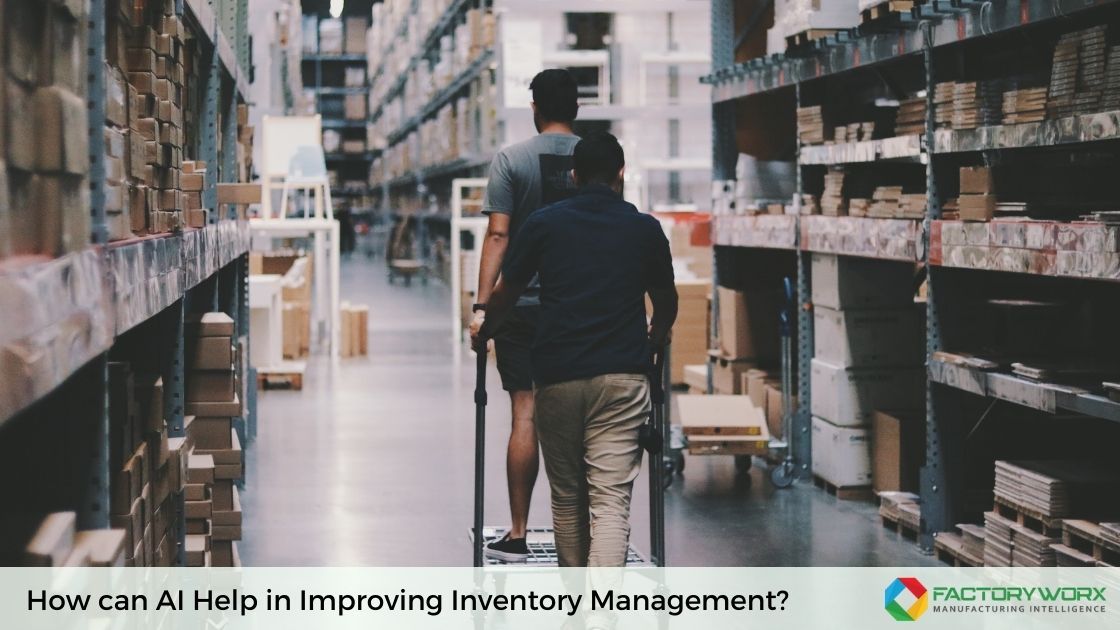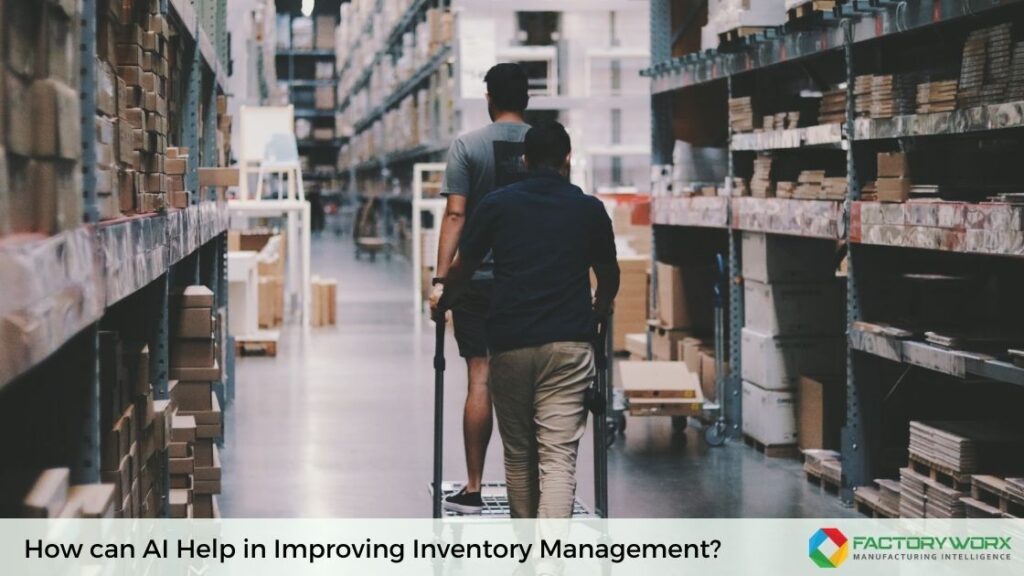
- March 31, 2022
- admin
- 0
Read Our Blog

How can AI help in Improving Inventory Management?
Artificial intelligence appears to have grabbed everyone's interest. Retailers and other e-commerce enterprises, particularly their inventory management system, are the best examples of successful use of cutting-edge technology. AI provides firms with valuable insights, such as trends identified from massive volumes of data processing, so that business leaders and their warehouse staff can easily handle inventory management duties daily.
Artificial intelligence (AI) can help with inventory control because AI delivers important insights for businesses by identifying intriguing trends from massive amounts of data, allowing procurement and warehouse teams to better manage the day-to-day tasks of inventory management.
In this post, we'll look at how artificial intelligence inventory management can help businesses in various ways. The greater the size of an inventory, the more valuable a trained AI gets.
Is Artificial Intelligence a Must-Have Asset for Inventory Management?
Artificial intelligence in inventory management aids in automating warehouse, stocking, and other procedures. It can help with physical tasks like transferring and tracking objects and more complicated circumstances like error-free planning or consumer demand forecasting requiring high intelligence. The number of operations and data to track rises, manually managing inventory management systems and protecting the organisation from errors becomes more difficult. That's when AI comes in place.
AI is also beneficial and cost-effective in the operational department, allowing human workers to focus on other tasks by transferring regular functions to machines. In addition, they can extend an automated warehouse without the need to hire additional workers.
Inventory management is a fundamental element of any comprehensive MES solution, such as FactoryWorx MES, because it is one of the essential operations of manufacturing and its supply chain. Inventory management systems are primarily concerned with the accuracy and control of goods stock, the placement of inventory at any given time, and cost optimisation.
From component arrival at the loading dock to product traceability through the whole Supply Chain to the Customer, FactoryWorx Inventory Management automation and real-time inventory visibility deliver superior efficiency and accountability of inventory management in the manufacturing process.
The advantages of using AI to improve inventory management
Reduced Costs of storage and shipment
Inventory management errors result in more than $300 billion in revenue loss. Businesses can reduce expenses and boost cash flow by using AI to improve inventory management. The vital feature of AI inventory management software is prioritising important activities to resolve bottlenecks, mitigate costly risks, and fulfil ever-changing demands.
As a result, the technology aids in the reduction of additional costs associated with excess storage space rent, unsold products, and low customer satisfaction rates. Simultaneously, AI enables you to make fast changes to your inventory or product line-up at little or no additional expense.
Inventory replenishment planning
Demand forecasting, perhaps more so than supply forecasting, is challenging. Because each data set contains errors and anomalies, data science is a vital application for predicting allocation in past supply and demand. Tracking of Abnormalities in supply and demand statistics is possible due to AI. This customer-behavior-centric strategy must address where, how, and when customers want their items delivered.
By studying consumer fulfilment choices and purchasing behaviors, inventory management solutions may increase store inventory levels using AI.
Waste management
Managing optimal stock levels to minimise stock-out or overstock situations is difficult for businesses. It is feasible to Apply Machine Learning to business and uses intelligent inventory management systems to:
- Product identification and tracking
- Take action when items are overstocked or under-stocked beyond a predefined threshold
- Maintain the appropriate levels of inventories for each product.
- Produce reports that can assist you in avoiding product deterioration and waste, among other things.
As a result, your business can make better use of limited physical space, operate more sustainably, save money on storage and ultimately manage waste.
Hyper-Personalised manufacturing
According to a recent poll, 20% of consumers said they would be prepared to pay a 20% premium for customised products and services. Companies can now take personalisation to the next level by creating products and services that are highly relevant to specific customers because of advancements in AI and software intelligence. Hyper-personalization, based on Big Data, combines curation and customisations to provide personalised user experiences tailored to a specific customer's needs.
Predictive analytics
Predictive analytics assists logistics and supply chain organisations in effectively meeting rising demand. For more than a decade, the industry has regarded predictive analytics as the most influential technology. The majority of decision-makers in the arena are enthusiastic about the trend. According to a report, data-driven decision making is critical to supply chain activities for 93% of shippers and 98% of third-party logistics providers.
This cost-effective solution uses predictive AI algorithms, which allow businesses to recognise failure patterns and anomalies, learn from them, and anticipate future machine component failure. It helps to avoid downtime by assisting in replacing machine components before they break, maximising uptime.
Supports data accessibility
The lack of visibility, which leads to gaps or inconsistencies in essential data, is one of the most typical data-related inventory difficulties. Since 43% of small businesses rely on old systems or manual processing, this can lead to data silos and human error.
On the other hand, AI management systems may automate the collection, storage, categorisation, and transmission of all inventory-related data. It includes product tracking, supplier delivery times, item locations within the storage facility, and product information. Furthermore, in an AI system, all of this data is available from any site.
Optimised stocks
Shortages, delays, over/under-stocks, and other business revenue issues can occur because of planning errors and inadequate stock monitoring. You may avoid such problems and optimise stockpiles by using AI-based inventory management solutions, which provide accurate forecasts, demand analyses, and other critical insights.
AI can send quick alerts about delivery delays, low inventory, and incidents, as well as collect and analyse data that might aid businesses:
- Utilise and respond to changing demands promptly.
- Plan your stockings carefully.
- Locate and plan adequate transportation.
- Improve the efficiency of your delivery by streamlining them.
- It can automate stocking and fulfilment procedures.
Stock optimisation can cut expenses, but it can also improve departmental collaboration, increase efficiency, and improve customer happiness. As a result, the company's revenue increases.
As external partners read data from an inventory database, they need to know how much of their inventory is still at the retailer to better plan their production. They can use data to predict the propensity to buy with accurate insights. This vital data is used to complement projections for future inventory requirements based on previous sales, contextual data, and promotional plans. It enables critical executives to plan inventory purchases from suppliers based on demand planner projections and shifting supply and demand.
For those industries looking to bring AI into their business operation, inventory can yield a profound impact.

